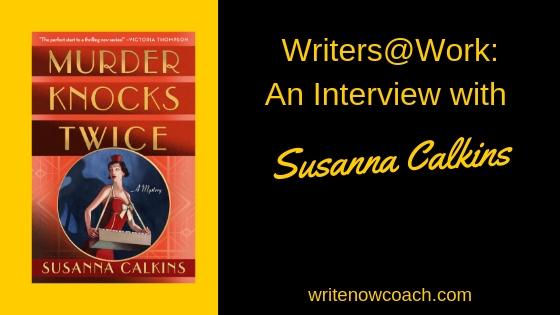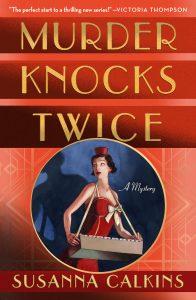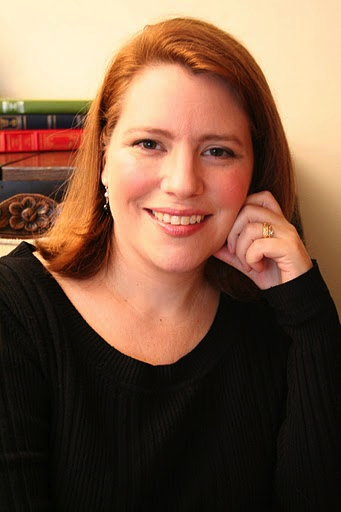Writers@Work: An Interview with historical novelist Susanna Calkins
May 14, 2019
Note From Rochelle
Dear Writers,
In honor of my birthday this year, I’m offering a brand new workshop at no cost to you. If you struggle with procrastination—and who doesn’t—Procrastination Proof Your Writing Life will support you in taking the steps you need to overcome your procrastination and write more. Sign up at the Workshop Page.
I’m delighted to welcome Susanna Calkins to the blog. Her brand new book, Murder Knocks Twice has just been released. Milwaukee-area residents can hear Calkins talk about her new book at Boswell Book Company in Milwaukee on Thursday, May 16.
Enjoy!
Rochelle

Writers@Work:
An Interview with Susanna Calkins
by Rochelle Melander
Welcome to the blog! Can you tell us about your new book, Murder Knocks Twice?
 Thanks for having me! Murder Knocks Twice is the first in my new series, The Speakeasy Murders. It’s set in 1929 Chicago and features Gina Ricci, a cigarette-seller working in the Third Door, a notorious underground speakeasy. The book begins on Gina’s first day of work, where she soon learns that she is filling the position of a recently murdered young woman. Even more troubling, she discovers that a relative she never met works at the speakeasy too, and when he dies under mysterious circumstances, she is pulled into a dark underworld, not sure who to trust.
Thanks for having me! Murder Knocks Twice is the first in my new series, The Speakeasy Murders. It’s set in 1929 Chicago and features Gina Ricci, a cigarette-seller working in the Third Door, a notorious underground speakeasy. The book begins on Gina’s first day of work, where she soon learns that she is filling the position of a recently murdered young woman. Even more troubling, she discovers that a relative she never met works at the speakeasy too, and when he dies under mysterious circumstances, she is pulled into a dark underworld, not sure who to trust.
This is a new series for you. Can you tell readers a bit about your other series?
Sure! My first series, the Lucy Campion historical mysteries, are set in 17th century London, against the backdrop of the plague and Great Fire of London, and feature a chambermaid-turned-printer’s apprentice. In the first book, A Murder At Rosamund’s Gate, Lucy is trying to keep her brother from being hanged for a murder he did not commit. In the books that follow, Lucy seeks justice for those who’ve been wronged, although in unconventional ways.
What prompted you to start a new series in a different time period? What drew you to the Prohibition era?
I’d always been fascinated by the Prohibition and the Roaring Twenties—and of course, the social and cultural tensions that played out in Chicago were particularly notable. Like my other series, I was drawn to the dramatic backdrop of 1929 in particular, and I was interested in exploring the impact of Prohibition on the everyday lives of people.
What tips do you have for writers who long to write a historical novel, but tend to do too much research?
My recommendation is to start by reading a few books about the time period, noting the aspects that fascinate you the most. Then try to be focused in the way you do your research, thinking about historic events and people you’d like to include in your book, and then identify details that will help pinpoint your book more specifically. I think that people can avoid falling down the rabbit hole—by feeling they have to keep researching more and more before they can write—by just starting to write. Personally, I just put in parenthetical reminders to myself as I go. For example I might write: She opened a can of [X] and poured the contents into the pot. Then I’d put a note or comment: Look up what soups Campbell was producing in 1929. But I don’t let it stop me from writing. Although when I switch to research mode I might start exploring how Campbell advertised soup, and then bring those details into my story.
You work as a history professor and parent children—what are your secrets for finding time to research and write?
Well technically, I’m not a history professor but I direct faculty initiatives at my university’s Learning and Teaching center. However, I do teach 1-2 graduate classes a year (including one that relates to US history), and of course I also have to do lots of promotional events and workshops. My children are older now and much more self-sufficient (15 and 12), so it’s easier to find more time to write now (mostly at night and on the weekends.) One of the things I’ve learned from studying motivation (in my day job) is that it’s important to keep track of immediate, short- and long-term tasks and to work on things I WANT to do. So whenever I find myself with some unexpected free time, I mentally sift through the tasks that I have and I work on the one that most interests me in the moment. Similarly, I always have “TV tasks” ready to go—they are the tasks I complete when the family is watching a movie, tasks that I can do with minimal concentration (e.g. downloading historic newspaper articles; updating my websites) but which have to be done.
What are you reading now?
I just got an advance copy of Edith Maxwell’s fifth Quaker Midwife Mystery, Judge Thee Not. I’m really enjoying it!
About the author
 Susanna Calkins writes the Lucy Campion historical mysteries set in 17th century London and the Speakeasy Murders set in 1920s Chicago (Minotaur/St. Martin’s). Her fiction has been nominated for the Mary Higgins Clark Award, the Agatha, the Bruce Alexander Historical Mystery (Lefty) and the Anthony, and was awarded a Sue Feder Historical Mystery Award (the Macavity). She has been teaching at the college level for more than 25 years and currently works at Northwestern University. Born and raised in Philadelphia, she lives in the Chicago area now, with her husband and two sons. Check out her website at www.susannacalkins.com.
Susanna Calkins writes the Lucy Campion historical mysteries set in 17th century London and the Speakeasy Murders set in 1920s Chicago (Minotaur/St. Martin’s). Her fiction has been nominated for the Mary Higgins Clark Award, the Agatha, the Bruce Alexander Historical Mystery (Lefty) and the Anthony, and was awarded a Sue Feder Historical Mystery Award (the Macavity). She has been teaching at the college level for more than 25 years and currently works at Northwestern University. Born and raised in Philadelphia, she lives in the Chicago area now, with her husband and two sons. Check out her website at www.susannacalkins.com.









Thank you!!! Fun interview to do!!!